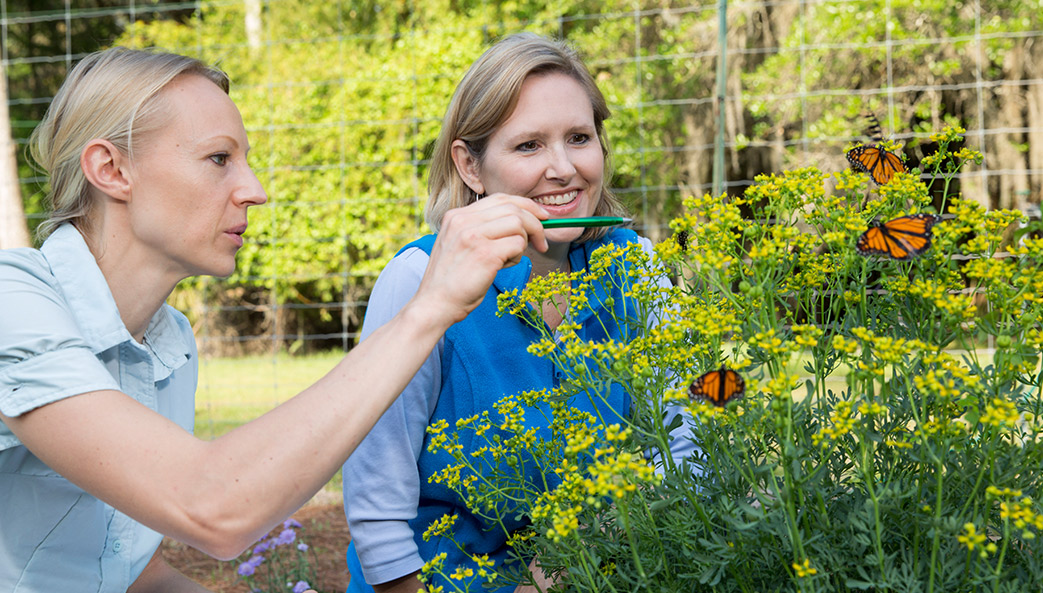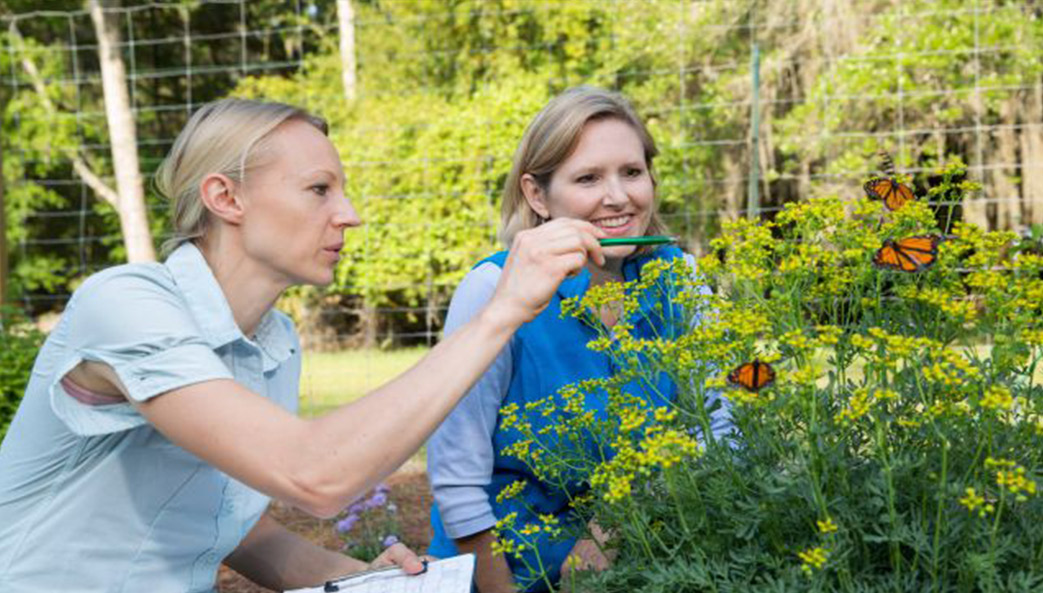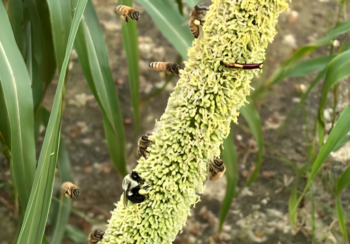Butterflies will use gardens planted to attract them, according to UGA researchers.
Insect pollinators are in decline globally due in large part to loss of habitat, and many concerned individuals have responded by planting butterfly gardens in hopes of boosting their numbers.
“Planting gardens for pollinators is increasingly popular,” says Ania Majewska (above left with professor Sonia Altizer), a doctoral student at the Odum School of Ecology, “but scientists still know little about how these human-created habitats affect pollinator populations.”
Majewska planted experimental plots at the UGA Center for Research and Education at Wormsloe, near Savannah. Some plots contained only native plants and some only exotic plants. Plots also differed in whether they were weeded regularly or minimally.
Within two months the gardens were colonized by a variety of butterflies, with 22 species documented. Majewska and her colleagues expected that butterflies would prefer the native plots, but the choice of plants and frequency of weeding did not have a strong impact. The greatest influence on butterfly abundance and diversity, the researchers found, was the number of plants actively flowering.
The study was published in the journal Insect Conservation and Diversity.
This brief appeared in the spring 2018 issue of Research Magazine. The original press release is available at https://news.uga.edu/butterfly-gardens-offer-hope-pollinators/.






